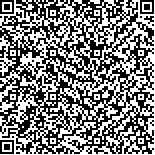|
| Abstract: |
| Mobile Edge Computing (MEC) is a promising solution to tackle the upcoming computing tsunami in 5G/6G era by effectively utilizing the idle resource at the mobile edge. In this work, a multi-hop D2D-enabled MEC scenario was studied, where mobile devices at network edge connect and share resources with each other via multi-hop D2D. The research focus was on the micro-task scheduling problem in the multi-hop D2D-enabled MEC system, where each task was divided into multiple sequential micro-tasks, such as data downloading micro-task, data processing micro-task, and data uploading micro-task, according to their functionalities as well as resource requirements. A joint Task Failure Probability and Energy Consumption Minimization (TFP-ECM) problem was proposed, aiming at minimizing the task failure probability and the energy consumption jointly. To solve the problem, several linearization methods were proposed to relax the constraints and convert the original problem into an integer linear programming (ILP). Simulation results show that the proposed solution outperformed the existing solutions (with indivisible tasks or without resource sharing) in terms of both total cost and task failure probability. |
| Key words: mobile edge computing micro-task scheduling multi-hop D2D |
| DOI:10.11916/j.issn.1005-9113.20027 |
| Clc Number:TN929.5 |
| Fund: |
|
| Descriptions in Chinese: |
| 基于多跳D2D通信的移动边缘计算网络最优子任务调度算法 高林,张钦宇 (哈尔滨工业大学(深圳) 电子与信息工程学院,广东 深圳 518055) 中文说明:互联网的快速发展和5G/6G时代的来临带来了海量数据,给云端数据中心造成了巨大的数据流和计算压力。移动边缘计算通过利用网络边缘端和移动端的海量设备资源,可有效缓解日益激增的数据和计算压力。本文研究一个基于移动端设备资源共享的移动边缘计算场景,其中邻近移动设备通过多跳D2D通信相互连接并进行资源共享。本文主要研究上述场景中的子任务分割和调度问题,即每个任务根据其功能和资源需求分割为多个顺序的子任务(如数据下载子任务、数据处理子任务、数据上传子任务),并为不同子任务调度不同的资源。本文主要关注子任务最优调度问题,建立了一个任务失败概率和能量消耗联合最小化的复杂优化问题,并提出了线性松弛方案将其转换为实际可解的整数规划问题。仿真结果验证本文所提最优调度方案在系统总代价和任务失败概率两个方面的性能均优于其他方案(如任务不分割调度方案和资源不共享方案)。 关键词:移动边缘计算、子任务调度、多跳D2D通信 |




